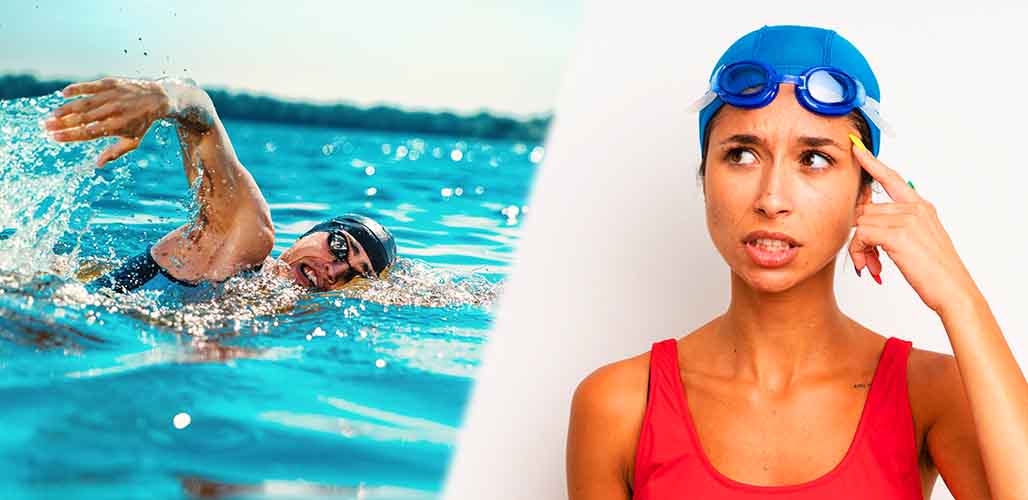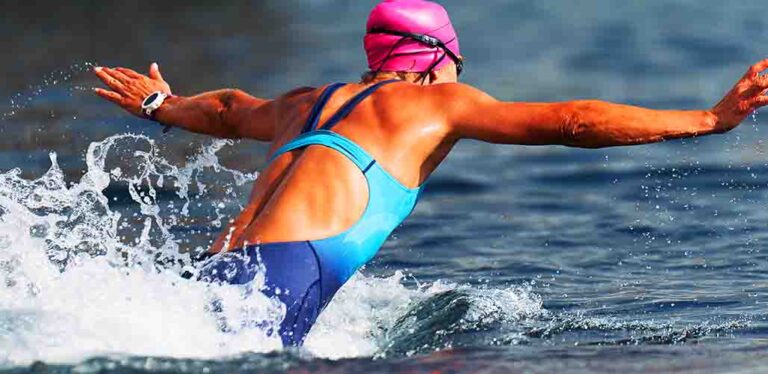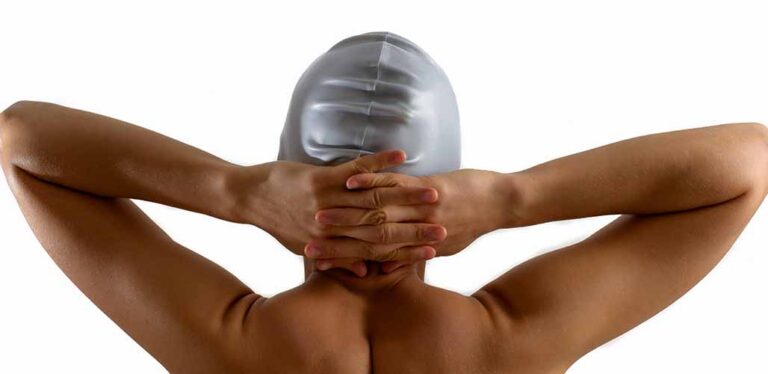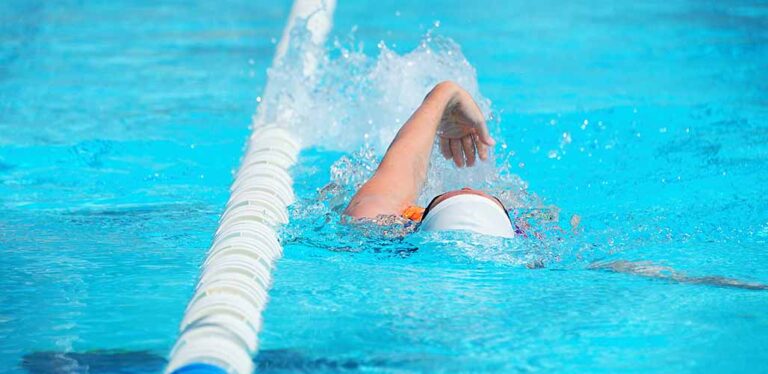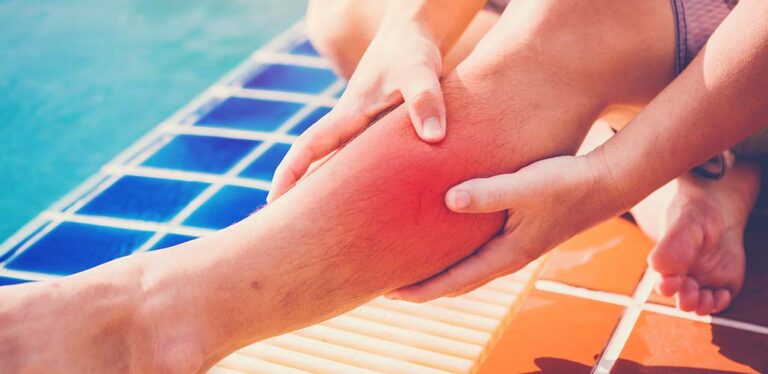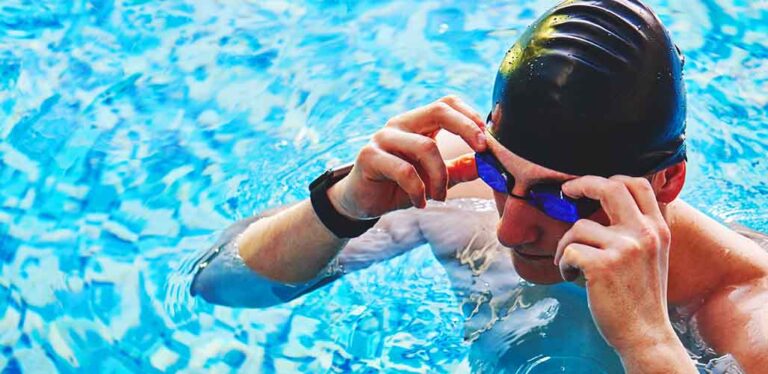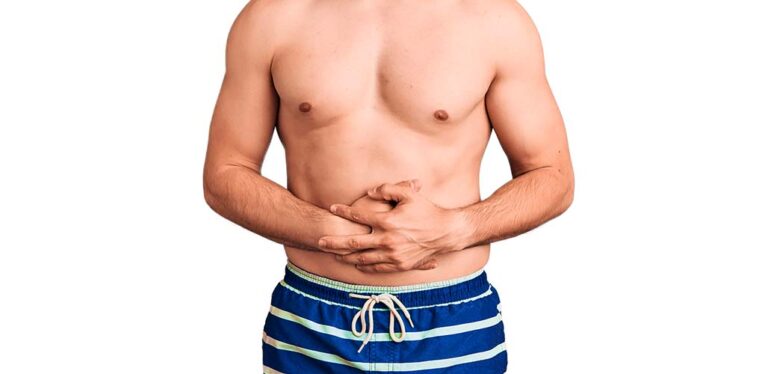What Should You Do After Swimming To Recover and Re-energise?
What should you do after swimming to make sure you recover well and regain the most energy? It’s important to cool down properly after swimming. But, there are a few other steps you can take to ensure you’re feeling your best after swimming and to set you up for your next workout. This includes staying hydrated, eating well, and taking care of your skin and hair.
Contents
- What should you do after swimming?
- Cooling down properly after swimming
- Showering and skin care
- What you should eat after swimming?
Knowing what to do after swimming can be a great way to refresh, re-energise, and improve your future performance.
What Should You Do After Swimming?
Swimming is a high intensity aerobic exercise that works a lot of major muscle groups in your body. Intensity varies depending on the speed you swim and the stroke you choose. But, for most people, swimming can be a great low impact workout choice. However, it can leave you feeling tired and depleted if you don’t take the time to replenish your energy and look after your body.
Whether you’re swimming first thing in the morning, or later in the day, here are a few things that you should do after swimming to stay feeling your best:
- Cool down properly
- Shower to remove sweat, chlorine and any chemicals from your skin and hair
- Rehydrate with water or a sports drink
- Eat a balanced meal with carbohydrates and protein
If you feel tired after swimming, the above steps can help you to stay refreshed and to re-energise you. Following the right steps after swimming are also more likely to leave you looking forward to your next workout! So, let’s take a closer look at each of the recommended steps for swimmers after their workouts.
Do I Need to Cool Down After Swimming?
Evidence and recommendations about active cooldowns after swimming vary. If your workouts are not very intense, you might find that a cooldown doesn’t make any significant differences to your recovery.
However, for some people, an active cooldown, for instance some light resistance on land or some slower swimming, can have an impact on their recovery. It can lower your heart rate sooner, reduce muscle soreness, remove blood lactate faster, and even improve your next day performance. A proper cool down can also have an important mental impact, preparing you for the next part of your day.
Swimming uses a lot of muscles in your body. So, it’s worth doing a full body cool down once you’re done. If you aren’t sure where to get started, there are plenty of videos online that can help you, like the one earlier in this guide!
Do You Have to Shower After Swimming?
There’s no hard and fast rule that says you need to shower after your swim. But, a shower after your workout is a great way to leave you feeling refreshed, clean, and energised. If you have sensitive skin, or a dermatological problem like psoriasis, it’s a good idea to shower off any chlorine after your swim. This will prevent your skin from feeling irritated after your workout.
It’s easy for sweat to go unnoticed when swimming, since you’re already in water. But, you will sweat during swimming. So, a shower afterwards can help you feel fresh and ready for your plans after your swim.
The disinfectants and chemicals used to make swimming pools safe for people and to prevent infection can be quite harsh on skin and hair. But, traces of cosmetics and pharmaceutical products can also be found in pools. A shower after your swim will wash the traces of these products away. You can extend this care by using moisturising skin products and conditioning hair care products during or after your shower.
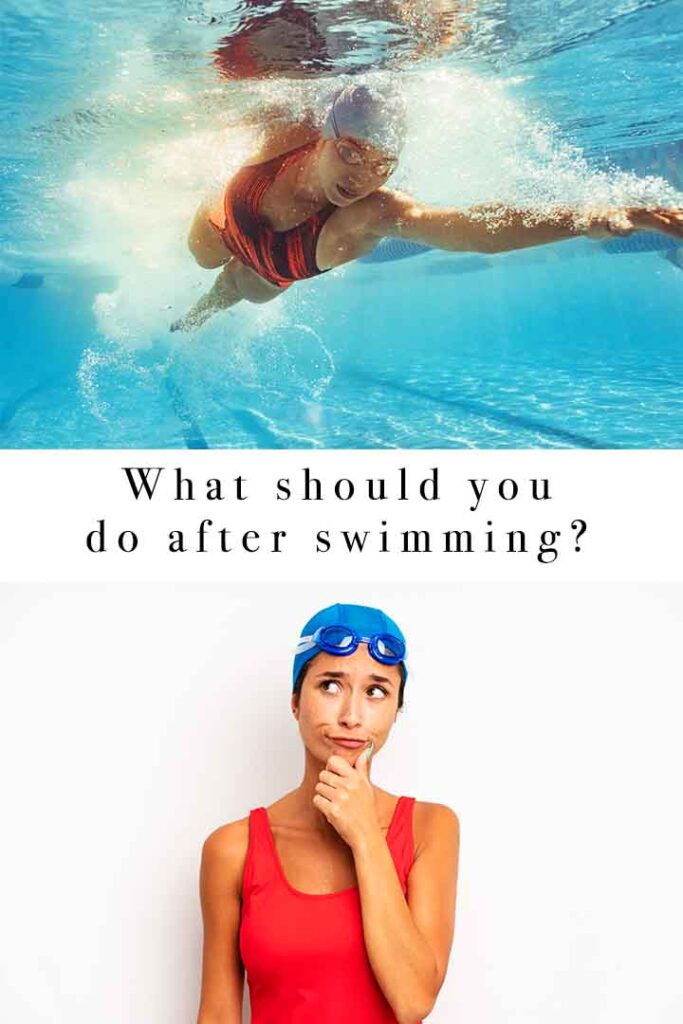
How Do I Take Care of My Skin After Swimming?
The chemicals and disinfectants used in swimming pool water can lead to feelings of itchiness and tightness on skin. Swimmers may also be more prone to dry skin and acne, among other dermatological problems. But, proper aftercare can help to keep your skin looking and feeling its best after your swim.
When you’re showering after swimming, make sure you wash your face well. Afterwards, you can apply moisturising face products, including a good quality SPF. If you’re swimming outdoors, it’s important to apply sunscreen before getting into the water too, and to reapply to exposed areas regularly.
Should I Eat After Swimming?
Eating after swimming can be a great way to replenish the energy you’ve lost during your workout. Depending on the time of day, this might mean eating a meal, or just having a small snack to keep you going until your next mealtime.
Eating after your workout can reduce feelings or tiredness, particularly if you don’t like eating anything before your swim. But it can also improve your performance and recovery. However, some people prefer waiting until they’ve cooled down and showered off until they eat, rather than doing so immediately.
Equally important to eating is making sure you’re properly hydrated after swimming. Proper hydration is vital to reduce feelings of tiredness after a swim, and will also help you recover before your next workout.
What is the Best Thing to Eat After Swimming?
Whether you’re having a small snack or a meal after swimming, it’s a good idea to choose foods rich in carbohydrates and protein. Fortunately, you can be quite creative here! So, whether you’re swimming before breakfast, lunch, or dinner, you’ll be able to create a great variety of meals for after each session.
If you’re swimming to lose weight, choosing a balanced meal with carbs and proteins afterwards is still important. Choose slow release, or complex, carbohydrates to avoid a brief spike in energy levels. A meal with slow release carbs will set you up for the rest of the day. A meal or snack with fast release carbs will give you a quick spike in energy levels, but can leave you feeling drained and tired after that.
On top of this, you should rehydrate. Drink plenty of water throughout the day. You might benefit from drinking an electrolyte energy drink or a small dose of caffeine, for instance with a coffee.
How Do I Regain Energy After Swimming?
It’s not abnormal to feel tired and a little drained after swimming. After all, you’ve just done an all-body aerobic exercise that’s likely burnt hundreds of calories. But, there are plenty of steps you can take after your workout to raise your energy levels again, and have you feeling your best.
Taking the time to cool down, shower, and apply some skin care is a great way to mentally refresh as well as physically refresh after your swim. But, on top of this you should make sure you’re eating a balanced meal and rehydrating yourself.
Proper recovery is important for preventing injury and muscle strain, but it can also impact your mental fatigue and future performance. So, it’s not something you should neglect.
What Should You Do After Swimming?
It’s a great idea to cool down after your swim, whether you choose a full body stretch, or simply swimming a different stroke at a much calmer pace. Make sure you rehydrate and eat some nutritious, energy-rich food to set you up for the day. Proper aftercare once your swim is done will encourage recovery and can help your performance the next day.
Do you have a set cool down after your swim? Or any great recipes for an energising post-swim meal?
More Post Swim Tips
- Prevent dry hair after your swim
- What to wear after a cold swim?
- How to brush out swim tangled hair
- Least tiring swimming stroke
References and Resources
- Van Hooren, B. & Peake, J. ‘Do We Need a Cool-Down After Exercise? A Narrative Review of the Psychophysiological Effects and the Effects on Performance, Injuries and the Long-Term Adaptive Response’, Sports Medicine (2018)
- ‘Acute Illness and Injury from Swimming Pool Disinfectants and Other Chemicals – United States – 2002 – 2008’, Centers for Disease Control and Prevention (2011)
- Teo, T. (et al), ‘Occurrence and Daily Variability of Pharmaceuticals and Personal Care Products in Swimming Pools’, Environmental Science and Pollution Research (2016)
- Gardinier, S. (et al), ‘Variations of Skin Biophysical Properties After Recreational Swimming’, Skin Research and Technology (2009)
- Morss-Walton, P. (et al), ‘Effects of Swimming on Facial Sebum in Adolescents’, Pediatric Dermatology (2021)
- Bharam, P. & Kocharekar, A. ‘Assessment of Knowledge and Hydration Awareness Among Swimmers’, Indian Journal of Physical Education, Sports and Applied Science (2022)
- Bonci, L. ‘Eating for Performance: Bringing Science to the Training Table’, Clinics in Sports Medicine (2011)
- Beck, K. (et al), ‘Role of Nutrition in Performance Enhancement and Postexercise Recovery’, Open Access Journal of Sports Medicine (2015)
- Beelen, M. (et al), ‘Nutritional Strategies to Promote Postexercise Recovery’, International Journal of Sport Nutrition and Exercise Metabolism (2010)

